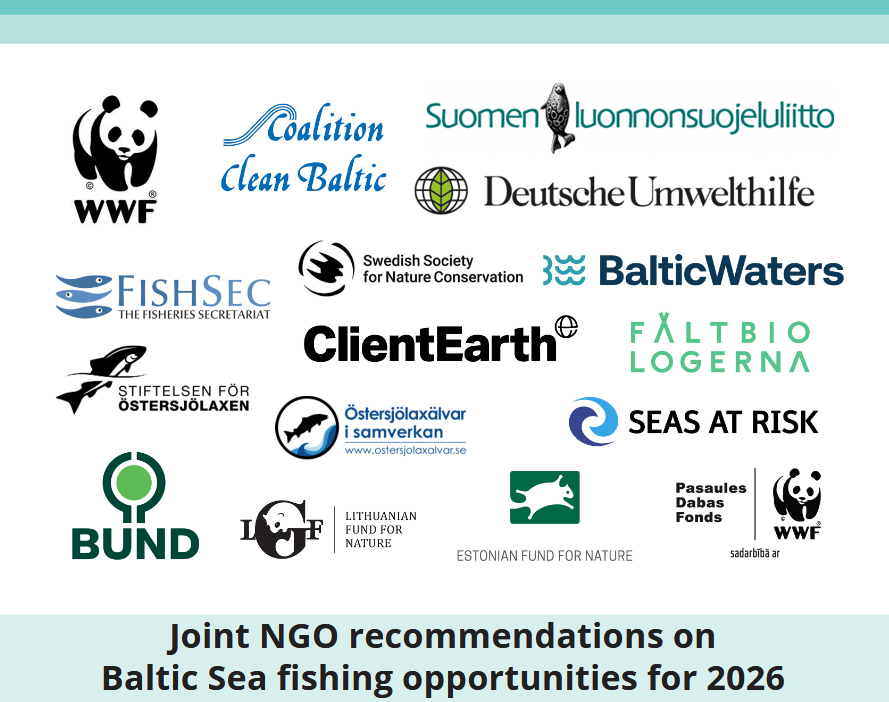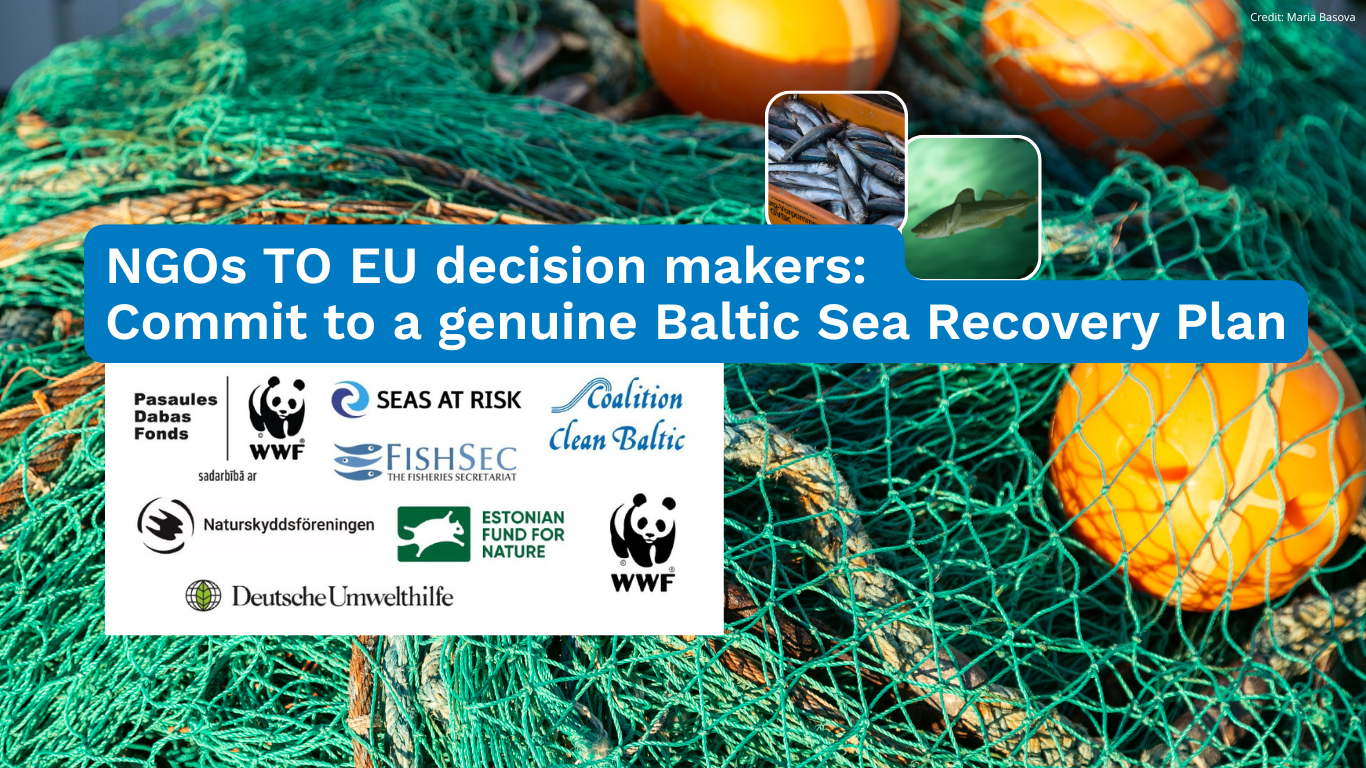Support and criticism for Commission proposal for Baltic Sea fishing 2020
Helsinki, 4 Sept 2019 – Environmental NGOs The Finnish Association for Nature Conservation , Coalition Clean Baltic and the Fisheries Secretariat welcome the fact that the European Commission proposal for fishing opportunities for 2020 in the Baltic Sea follows scientific advice for the majority of the Baltic Sea fish stocks. However, NGOs strongly question the proposals for a number of stocks, which have not followed the scientific advice, like salmon, western herring and eastern cod.
“ The scientific advice on main basin Baltic salmon clearly states that commercial landings should be 58 900 salmons. The Commission proposal of 86 575 salmons is not inline with that advice. Ministers at the October Council should follow the scientific advice on Baltic salmon, not the Commission proposal “, said Tapani Veistola Senior Advisor at the Finnish Association for Nature Conservation.
Nils Höglund Fisheries Policy Officer at Coalition Clean Baltic, said: “ On western Baltic herring the science advice for a second year in a row is for zero catch. The Commission ignored the advice last year and member states then made it worse by increasing the TAC in the final decision. Unsurprisingly the stock did not improve. Unfortunately this years Commission proposal is again not inline with the scientific advice. We urge fisheries ministers to support the scientific advice ”.
Lindsay Keenan Fisheries Policy Officer at the Fisheries Secretariat added: “ For eastern Baltic cod the science is clear, the stock is in crisis and so we welcome the proposal of no direct cod fishing. We also welcome the proposed spawning areas protections, which should be a key part of a comprehensive long-term rebuilding plan for both cod stocks. However we have serious concerns about the proposed bycatch TAC for eastern cod, for which no figures are yet presented ”.
The NGOs point out the need for introduction of fishing gears that reduce bycatch and that such gears already exist. They also note the need for additional control and monitoring of medium & high risk vessels as a pre-condition for allocating quota.
With regard to the main pelagic stocks (sprat and herring), the NGOs note that the proposal disregards one crucial part of the scientific advice, namely to move some portion of the pelagic fishery to maximize the food availability for the weak cod stock. This must be addressed as a part of a long term recovery plan for the cod.
Veistola said, “With some Baltic stocks in crisis, the Common Fisheries Policy deadline of 2020 for stocks to be managed sustainably and in the midst of a biodiversity and climate emergency, decisions taken during Finlands presidencies of the EU and Baltfish will be crucial.”
The Commission and member states need to start really dealing with the substantial ecosystem problems in the Baltic Sea. Environment and fisheries Ministers need to work together to agree and implement long term solutions.
For information:
– Mr. Tapani Veistola, Finnish Association for Nature Conservation: +358 400 615 530
– Mr. Nils Höglund, Coalition Clean Baltic: +46 708 679 249
– Mr. Lindsay Keenan, Fisheries Secretariat: +46 707 100 510
Notes:
1) Finland will chair the Baltfish forum and High Level Group meetings in Helsinki on 4 & 5 Sept. Baltic member states senior fisheries officials will discuss the Commission proposal with a view to developing a Baltic consensus ahead of final decisions at the EU Fisheries Ministers Council meeting on 15-16 October.
Finland currently also chairs the EU Council. On 4 Sept the EU Parliament PECH committee will have a first exchange of views with Mr Jari Leppä, Finnish Minister for Agriculture and Forestry concerning Finlands EU presidency priorities.
2) Media briefing: Baltic and EU fisheries: Wed 4 Sept 2019 @ 09.30 – 10.30 – House of Science: Tieteiden talo, Kirkkokatu 6, Helsinki.
Baltic fisheries NGOs will also host a media briefing to offer their reaction to the EU Commissions proposal for Baltic fishing opportunities for 2020 and their analysis of the key issues facing Baltic fisheries. Fisheries policy officers from Finnish Association for Nature Conservation, Coalition Clean Baltic, The Fisheries Secretariat and Oceana will be available for interview.
3) Weblinks:
Commission Proposal for Baltic Sea fishing Total Allowable Catches
NGOs recommendations on Baltic fishing opportunities for 2020 are available at:
COMMISSION IMPLEMENTING REGULATION (EU) 2019/1248 of 22 July 2019 establishing measures to alleviate a serious threat to the conservation of the eastern Baltic cod (Gadus morhua) stock
Web link to EU press release re eastern Baltic cod emergency measures
ICES advice on western Baltic Herring Published 29 May 2019
ICES advice on Atlantic salmon in the Baltic Sea, excluding the Gulf of Finland
PECH committee agenda:

